|
|
|
|
Kenya is set to begin its COVID-19 vaccination rollout following the arrival of the first batch. The government has released a detailed plan that covers nine areas, starting with which groups will be targeted first through to monitoring and evaluation. For the moment, the target is to cover 30% of the population. However, once more doses and funds become available, this will be expanded. Catherine Kyobutungi provides some insights into
the strategy, and sheds light on the benefits and challenges of including the private sector in the plans.
When it comes to South Africa’s plans, writes Geo Quinot, there is a great deal that’s not known – and that should be known. There might be valid reasons behind the vagueness of some of the detail. But in most instances, the information should be available, and made public.
Other countries on the continent have also released their plans. Ghana has set some aggressive targets, but faces major hurdles in meeting them, as Nana Kofi Quakyi explains, while Veronica Ueckermann answers key questions about South Africa.
But the biggest headache for the continent is trying to ensure that programmes are put into effect in every country. This looks increasingly unlikely in Tanzania where the government has turned its back on vaccinations. Catherine Kyobutungi explains the dangers behind this decision and Ahmed Kalebi looks at the broader implications of countries taking this stance.
|
Moina Spooner
Commissioning Editor: East and Francophone Africa
|

|
|

Kenya’s health minister Mutahi Kagwe next to the country’s first batch of COVID-19 vaccines at the Jomo Kenyatta International Airport.
EPA-EFE/Daniel Irungu
Catherine Kyobutungi, African Population and Health Research Center
Reaching the goals of the plan requires the best possible interaction between public and private -for profit and not-for-profit - healthcare sectors.
|
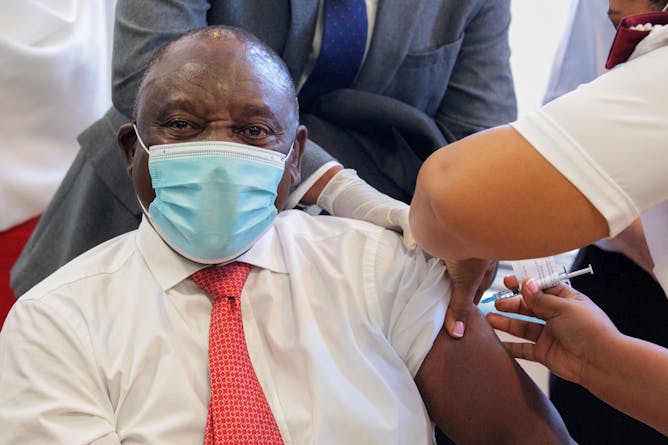
There’s much that President Cyril Ramaphosa’s government has yet to explain to South Africans about the COVID-19 vaccine procurement.
Getty Images
Professor Geo Quinot, Stellenbosch University
South Africa's constitutional values of good public governance and transparency in public procurement have been sacrificed in the process of buying COVID-19 vaccines.
|
|
|

Nana Kofi Quakyi, New York University
Ghana's mid-year target of procuring and administering 17.6 million COVID-19 vaccine doses may be constrained by global supply, cold chain capacity, and vaccine hesitancy.
| |
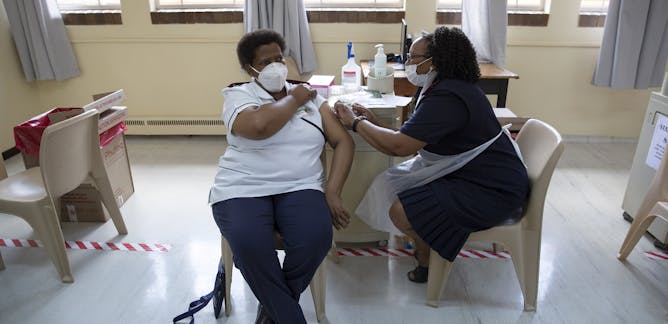
Veronica Ueckermann, University of Pretoria
South Africa is aiming for 67% coverage, which translates to about 40 million people by the end of 2021.
|

Catherine Kyobutungi, African Population and Health Research Center
The pandemic will not end for anyone, anywhere until it is controlled in every country. Tanzania’s approach will make it that much harder for normality to return.
| |
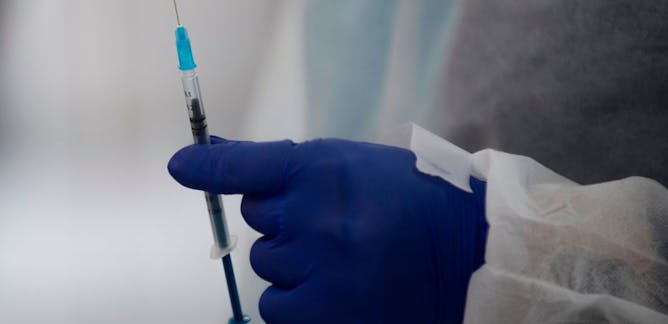
Ahmed Kalebi, University of Nairobi
Even those that live in areas where the population has already been vaccinated would not be totally protected if the virus mutates elsewhere.
|
|
|
Environment + Energy
|

Galina Alova, University of Oxford; Philipp Trotter, University of Oxford
A significant number of African countries might not make a decisive leap to renewables this decade.
| |
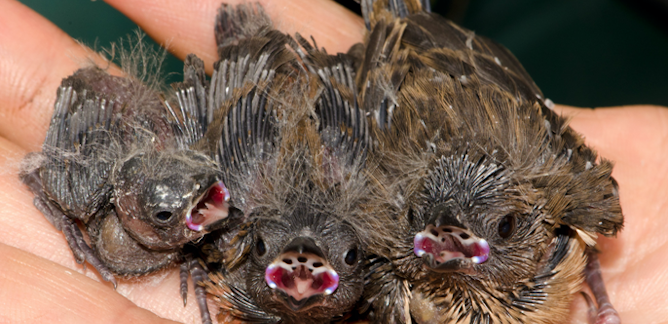
Gabriel A. Jamie, University of Cambridge
Rather than constructing a nest, incubating eggs and feeding young, some birds deposit their eggs in the nests of other birds and trick them into doing the child rearing.
|
|
|
Business + Economy
|
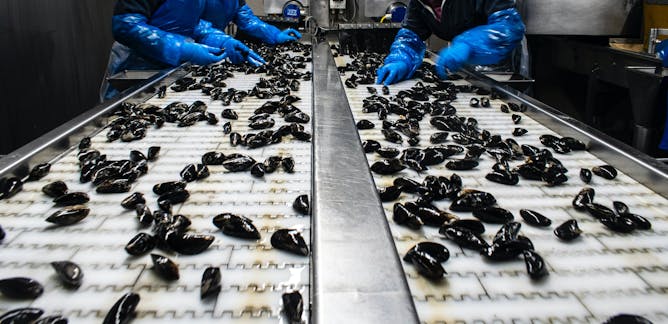
Raluca Bejan, Dalhousie University; Kristi Allain, St. Thomas University (Canada)
Debates about public safety and temporary foreign workers continue without input from those whose health is most affected. Migrant workers themselves are largely invisible amid discussions about risk.
| |

Keith Cuthbertson, City, University of London
Female representation on FTSE 100 boards has risen from 12% to over 33% in a decade.
|
|
|
En español
|

Rubén Garrido-Yserte, Universidad de Alcalá
La historia reciente de Venezuela ha estado ligada al petróleo. Ha sido fuente de divisas y ha condicionado la economía, la política y la vida diaria de los venezolanos.
| |

Juan Jiménez Salcedo, Universidad Pablo de Olavide; Arantza Galiardo López, Universidad Pablo de Olavide
Parece que, al fin, en una mayor sintonía con el siglo, la diplomacia española está en condiciones de asumir que Gibraltar, antes que a nadie, se pertenece a sí mismo.
|
|
|
| |
| |
| |
| |
| |
| |
|
|
|
|
|
|
|